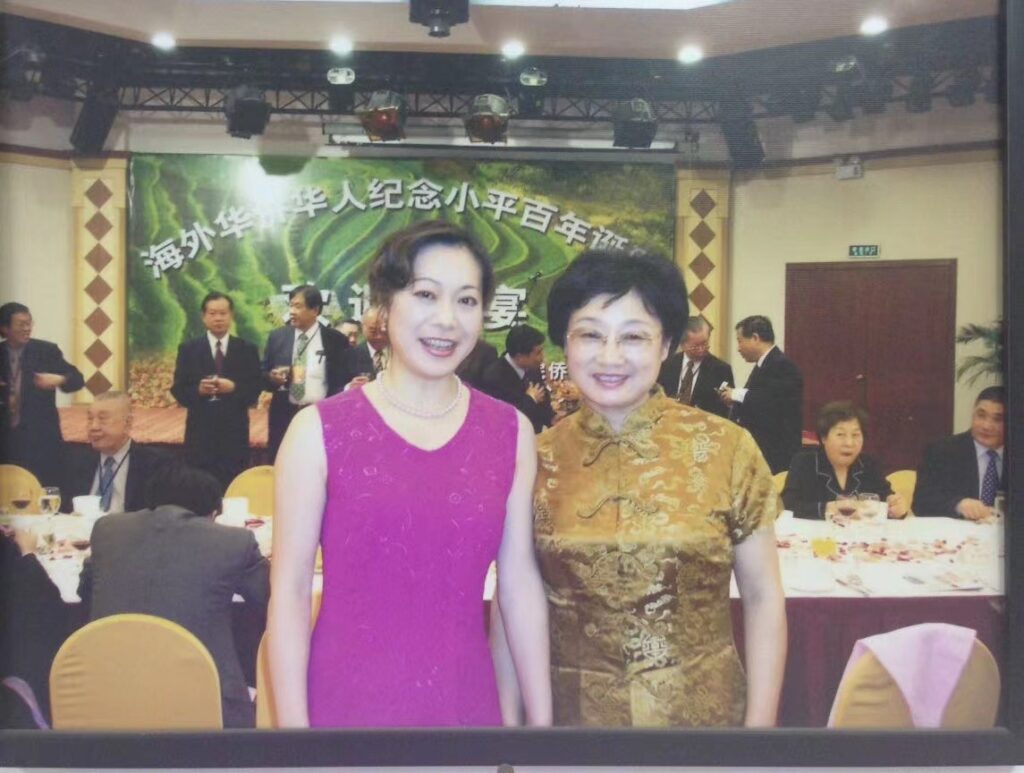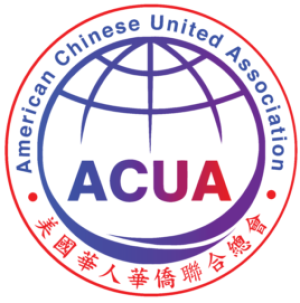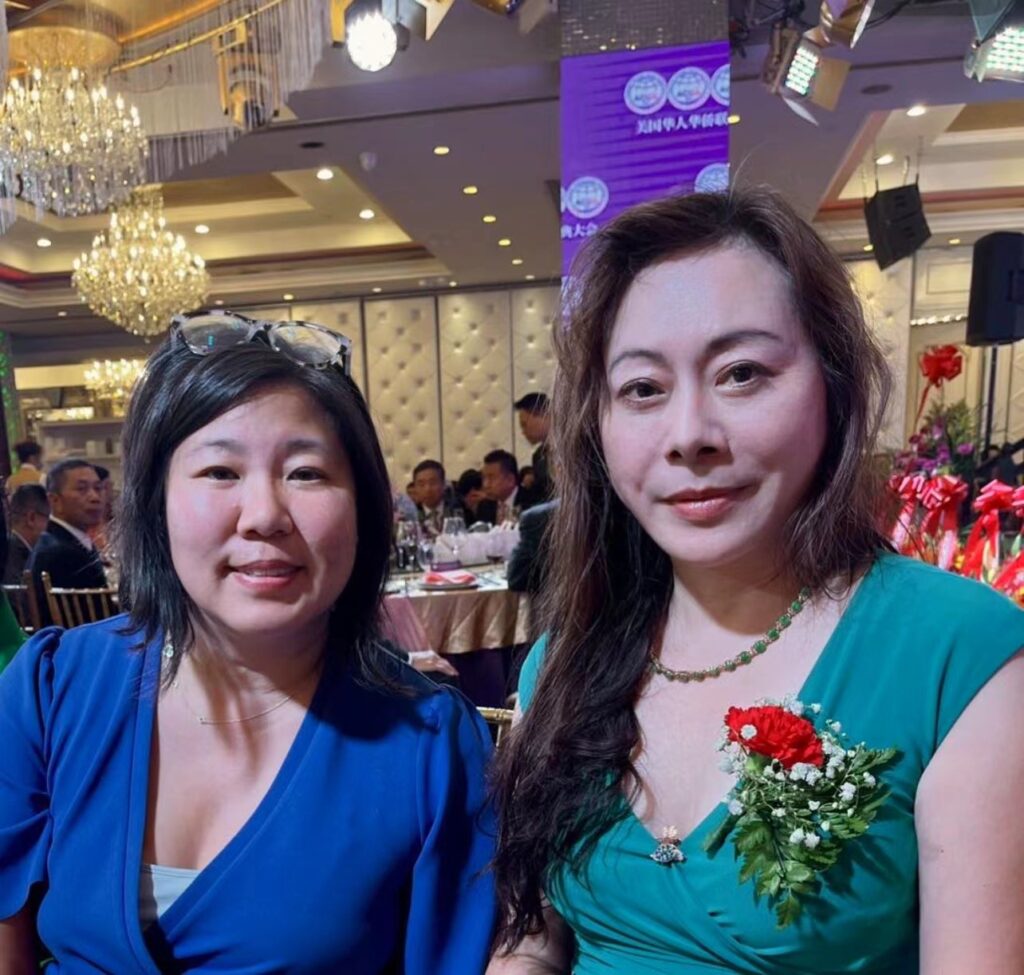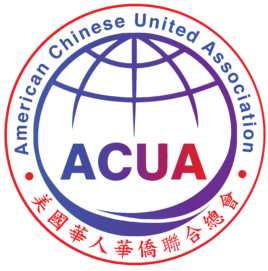On July 13th, the American Chinese United Association (ACUA) granted the “Mulan” award to Mrs. Xiaoshan Wu. As an outstanding representative of Chinese-Americans, Mrs. Wu received the award to celebrate her contribution to Chinese-American community’s development in the U.S. as well as her effort to defend women’s rights. Felicia, a reporter from ACUA, interviewed Mrs. Wu regarding her experience as well as advice for Chinese-American entrepreneurs.
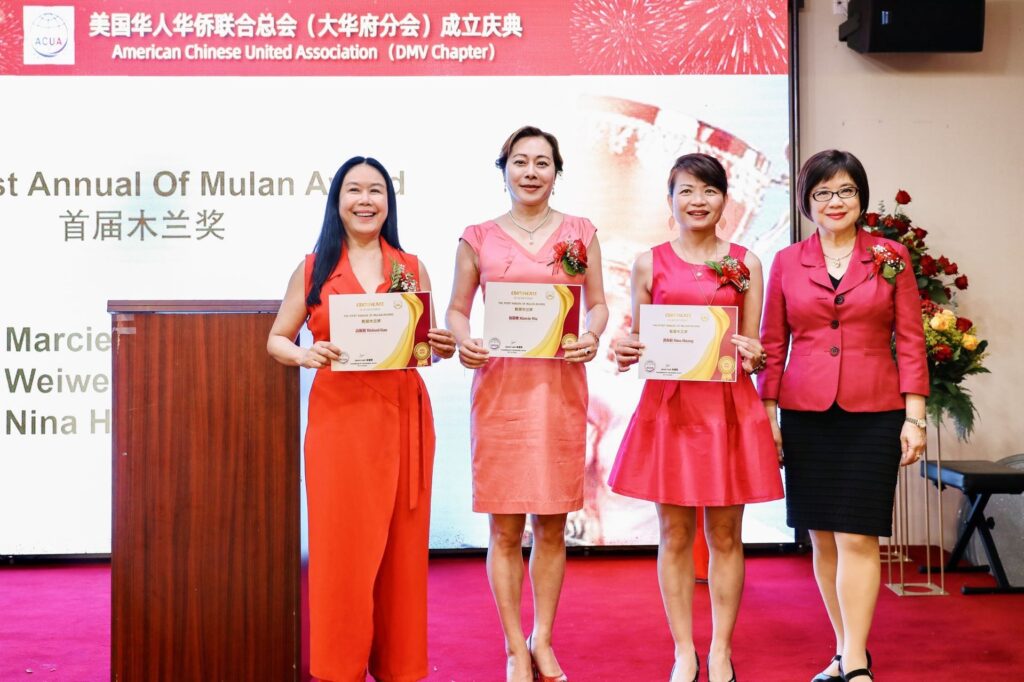
Q1: Can you briefly describe your life experience and your feelings?
A1: I am rather a simple person, spending most of my lifetime at college campus. Although my parents could not fulfill all of my material needs when I was a kid, my childhood still had an abundant spiritual life.
I chose STEM major for my undergrad degree since my childhood dream was to become a scientist like Madame Curie. I stayed in the school and worked as a faculty after graduating from Sichuan University, and came to the U.S. to pursue law and public policy degrees during the late 90s. My first job was the assistant of a Federal judge. I consider this opportunity as an important step in my U.S. experience that allows me to acquire insights into American society.
Later on, I left the law firm and joined Citi Bank Group’s merging and IPO sector. This experience offered me a valuable chance to understand how financial institutions operate in the U.S. Most of our clients are MNCs, including U.S. government fund, Bank of China, Industrial and Commercial Bank of China, China Telecom, Bank of Japan, ect.
I also made some attempts to start an online education company and technology-focused venture capital. No matter success or regret, I always consider these pieces of experience as my fortune. At this moment, my primary goal is to assist Chinese-background enterprises’ developments with financial instruments and support technical innovators.
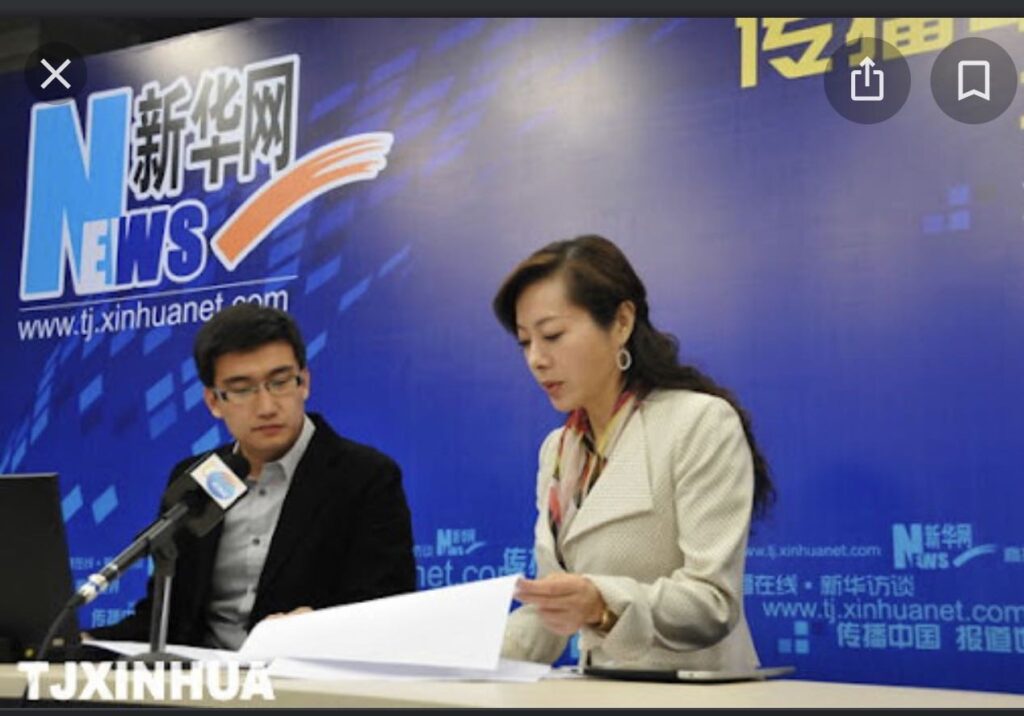
Q2: Could you share your motivation to join ACUA?
A2: Chinese is a brave, hard-working, and clever group of people. “Smart and strive” has already become a symbol of Chinese at U.S. workplace; however, the Indian population is enjoying a better trend of development in the recent years. This is not because they are even smarter than Chinese; instead, it is the result of Indian people’s notion of community and significant efforts in social networking.
For instance, one of my Indian neighbors had rallied an elite alliance focusing on recommending talents into large enterprises’ Board of Directors (D-Class). They are not satisfied by C-Class titles (i.e. CEO, CFO) anymore, and look forward to pursuing better positions with collective efforts.
The power of collective action is unlimited. A brighter future will be available, in my opinion, if all Chinese in the U.S. could unite together, share resources, and support each other. ACUA and its chapters in 10+ states is an ideal organization to achieve this goal, and I would like to devote myself to the Chinese-American’s common good by joining ACUA.
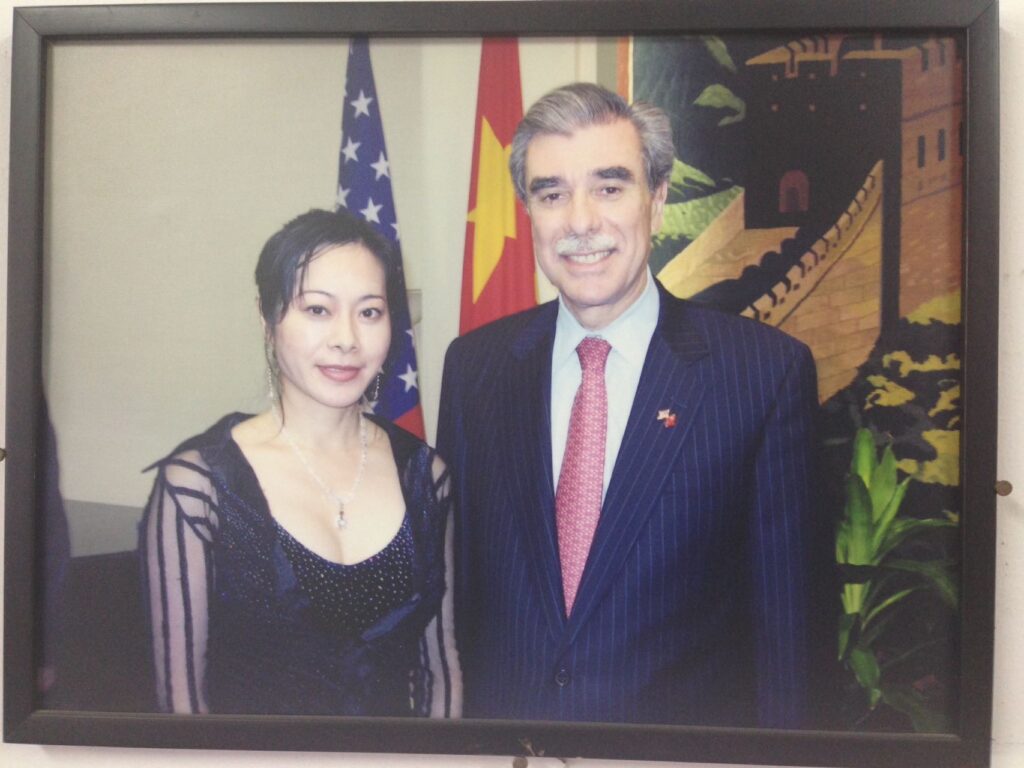
Q3: How do you interpret Chinese-American’s social status at this moment?
A3: A certain population group’s social status in a country is determined by its influence and contribution. Chinese-American’s influence and social status in the U.S. keeps growing ever since the early-stage immigrant period to now on, playing a role of backbone and elite in the fields of art and technology.

Q4: How do you interpret the notion of integrate into the mainstream society and its methods?
A4:Participate in politics. Economic base determines the superstructure, and critical positions could impose determining influence. The more Chinese-American participate in politics and hold key positions in administrative/legislative branches, the more benefits and voices they could achieve for the Chinese-American community.
With its advantage of locating in the capital, the D.C. Chapter could jointly rally activities with the ACUA and other chapters to communicate with the Federal government, the Houses, and each state’s institutions, allowing the related government departments to fully understand and support Chinese-Americans’ appeals.
Expand Chinese-background enterprises by utilizing the capital market and developing financial instruments
Expanding from restaurant, hotel, and real estate to technological and financial sectors, Chinese startups keep broadening their range and market share. However, the number of top-tier companies owned by Chinese-American in the U.S. or worldwide is still limited, while traditional Chinese-American enterprises’ understanding to finance or capital market is limited.
The U.S. has a well-developed capital market and financial industry. Cultivating unicorns and establishing MNCs, for the Chinese-American community, require the appropriate utilization of capital. Setting up professional venture capital and appointing professional managers to catch investment opportunities while avoiding unnecessary risks could be an ideal method.
Develop high-tech enterprises with Chinese-American’s outstanding talent team
Cutting-edge technology represents not only advanced productivity but also a channel to a significantly higher profit rate compared to that of traditional industries. Many new generation Chinese immigrants in the U.S. are scientific/technological professionals with higher education backgrounds. Though they have already made important contributions to America’s technology innovations, it is still rare to find big tech company started by Chinese-American or see Chinese investors in tech-related industries.
I am very glad to see that the ACUA and its D.C. Chapter emphasize the Chinese-American’s development in technology-related industries while attempting to establish a fund that integrates product, technology, and capital.
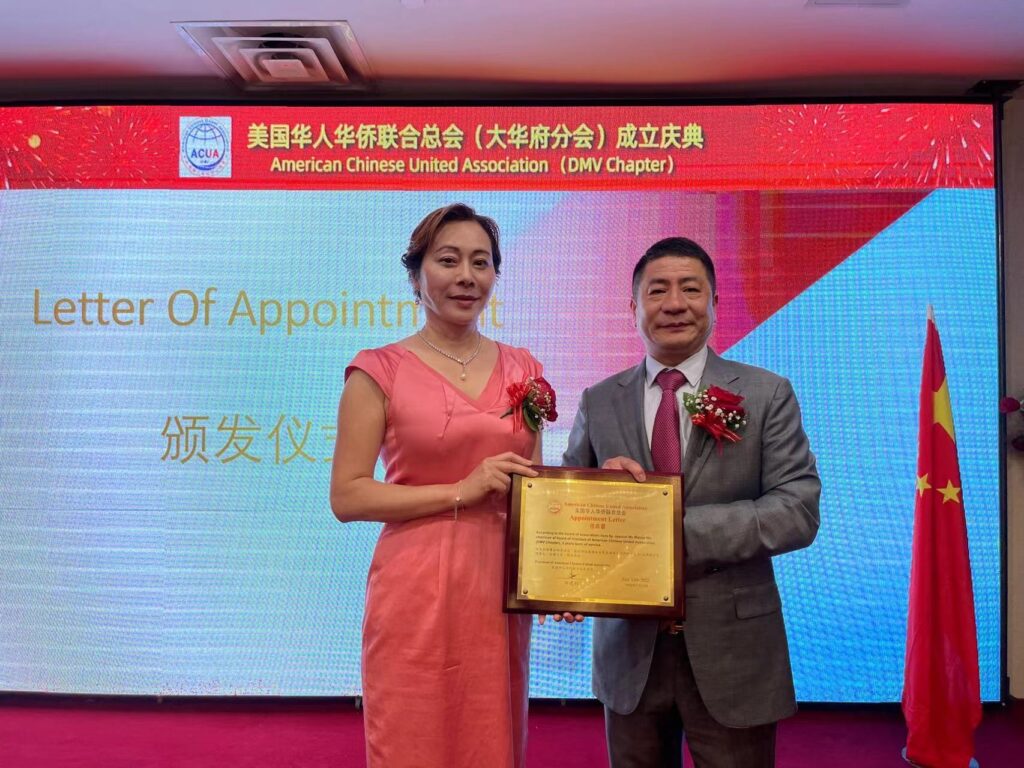
Q5: Congratulation for winning the ACUA’s first Mulan Award. What does this award mean to you?
A5: It is my great honor to receive the first Mulan Award! I appreciate the ACUA’s affirmation of my achievements, and congratulate other Mulan Award winners.
Grant to outstanding Chinese-American female, Mulan Award is designed to encourage and support women’s causes. The name of this award comes from the legend of Hua Mulan, who took her father’s place in the conscription for the army by disguising herself as a man. Disney’s movies and comics about Mula’s story create a popular image, reminding us of the significance of females’ power.
Candidates include but are not limited to: highly educated females with high academic/professional skills; female entrepreneurs; female politicians strive for women’s and the Chinese-American community’s rights; female activists who participate in community services and make significant contributions.
Chinese-American females’ talents and charms are shining across industries. We should show their highlight to the public, encourage more Chinese females to improve themselves and participate in workspace, and offer them bridges to success.
